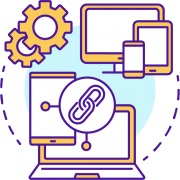Welcome back to part two of the ‘9 Mistakes to Avoid a Failed Wheelchair Service Software Implementation’ series.
If you’re joining us new for Part 2 of the series and don’t want to miss out Part 1 is available here. To recap quickly here’s mistakes #1-5 to jog your memory:
- Lack of Sufficient Planning
- Not getting everyone on board
- Carrying our excessive customisation
- No full-time client-side project manager
- Insufficient focus & underestimating the resources required.
Now let’s dive right in!
Mistake Number 6:
 Lack of proven project methodology
Lack of proven project methodology
CSS has a proven implementation approach that’s focused on organisation needs and mitigating through:
- Addressing the key needs of the organisation
- Reducing the overall risk
- Delivering value from day one
- Reducing customisation and associated costs
To achieve a successful wheelchair service software implementation a high-level of co-ordination is required to ensure work is on track to achieve your objectives. At CSS, we recommend the creation of a joint project board composed of key stakeholders and senior project leaders. Our methodology provides numerous scheduled meetings to check the progress against key milestones and to review budget consumption and earned value. It’s also a way to highlight potential issues early on and agree how to mitigate the risk.
Mistake Number 7:
 Not investing in role-based training
Not investing in role-based training
The lack of ‘proper’ training is one of the most common reasons IT projects fail. Make sure that the end-user has enough time to get used to the system from a business process perspective before going live. This will increase your chance of success.
Mistake Number 8:
No on-going maintenance and support
Once our wheelchair service software is live, it’s important that you invest in on-going maintenance support, that’s why CSS provide on-going product support as part of their project costs.
Mistake Number 9:
 Not decommissioning legacy systems
Not decommissioning legacy systems
It’s important to include the decommissioning of legacy or out of date systems into your wheelchair service software implementation plan. Many companies fail to decommission old systems and the end result is a new software solution with all the old applications hanging off it.
Make sure you create a roadmap to decommission your old IT system/s and assign the appropriate resource.
At CSS, our mission is to become a long-term trusted partner for our customers and the implementation process is where that partnership begins. We have a great team of people with years of industry expertise, who built that relationship as they guide our customers through the implementation process.
So there you have all of the 9 vital pitfalls to focus on during a software implementation. Join us next week where we show you how to audit your current software with a few simple questions.
If you would like to find out more about our approach to new or recovery enterprise implementations, why not get in touch:
T: 0800 652 0488 E: enquiries@csseurope.co.uk
